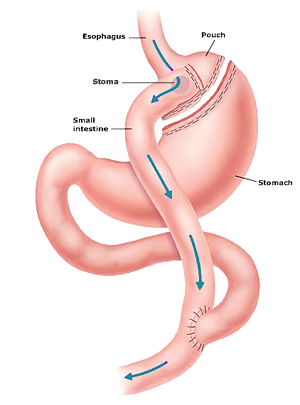The Longevity of Metabolic Benefits from Gastric Bypass
A recent study from Lund University in Sweden casts doubts on the long-term effectiveness of gastric bypass procedures in inducing metabolic changes. The research reveals that the most significant metabolic alterations occur immediately after surgery, with metabolite and fat concentrations returning to near pre-operative levels within just one year.
While previous studies have highlighted that the majority of individuals undergoing gastric bypass surgery regain weight within five years, little was known about how these procedures impact metabolism. In a new report published in the journal Obesity, researchers investigated the metabolism of overweight individuals both before and after gastric bypass surgery. Their findings indicate that the most substantial metabolic shifts occur shortly after the operation, with participants’ metabolite and fat concentrations nearly returning to pre-surgery levels after one year.
Tip: Please fill out this form to determine whether or not you or a friend are eligible for a CGM. Also, know about Glucose Trends Analysis
“Relying solely on weight measurements may not provide a comprehensive understanding of the procedure’s effects. Our study delves deeper into the metabolic changes associated with gastric bypass surgery,” says Peter Spégel, associate professor of molecular metabolism at Lund University, who led the research.
Rapid Reversion
The study involved 148 participants, including individuals with and without type 2 diabetes, who underwent gastric bypass surgery in Sweden. Blood samples were collected from participants before the procedure and at least twice afterward, while their body mass index (BMI) was measured before the operation and on three subsequent occasions.
The blood’s metabolites and fat content underwent thorough analysis by the experts. Just one year after the operation, some participants’ metabolic markers had returned to their pre-surgery levels, while others showed less pronounced reversion.
Read Guide about Wegovy Dosage Guide: The Best Way For Weight Loss
“We observed these changes even when the participants had a low BMI shortly after the operation. By examining metabolism, we can detect early signs of unfavorable developments. This knowledge can be valuable for implementing preventive measures,” explains Nils Wierup, professor of neuroendocrine cell biology at Lund University and one of the primary authors of the study.
Heightened Type 2 Diabetes Risk
Following the surgery, levels of certain polyunsaturated fats initially increased and then declined, approaching their pre-operative levels. These fats can lower the risk of cardiovascular disease and are necessary. The study also found a drop in the concentration of specific amino acids post-surgery, followed by a subsequent rise. Elevated levels of these amino acids are typically found in individuals with insulin resistance, increasing their risk of developing type 2 diabetes.
Our research indicates that gastric bypass surgery dramatically lowers the risk of type 2 diabetes in people who do not already have it. However, one year later, this risk increases again. For individuals with pre-existing type 2 diabetes, we observed remission after surgery, but the risk of disease recurrence rises over time,” says Peter Spégel.
Read More About: The effects of chronic disease medications on thermoregulation
Evaluating the Merits of Bariatric Surgery
Individuals preparing for obesity surgery must lose weight through dieting before the operation. A prior study by the same research team investigated the effects of a low-calorie diet and gastric bypass surgery separately. The research revealed that the diet had the most significant impact on metabolism, while surgery resulted in relatively minor changes. The latest study suggests that, for many individuals, the beneficial metabolic effects of surgery diminish within a year.
To come to certain conclusions, we need to conduct further in-depth research. Despite potential weight regain after the procedure, bariatric surgery offers the advantage of diabetes remission for a majority of type 2 diabetes patients. Our future investigations will delve into individual metabolic variations, which can be highly variable,” concludes Nils Wierup.


